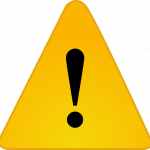 There is never downtime when it comes to being aware of potential scams. In fact, criminals like seizing opportunities when people are most vulnerable. 2020 has given scammers many opportunities to exploit.
There is never downtime when it comes to being aware of potential scams. In fact, criminals like seizing opportunities when people are most vulnerable. 2020 has given scammers many opportunities to exploit.Here are a few examples:
- COVID-19 vaccine
- Stimulus checks
- Unemployment benefits
- Job opportunities
- Holiday shopping
Scammers’ goal is to get your personal information to steal your money. Don’t let them!
What can you do?
Stay informed. Scams are always evolving, so it’s a good idea to check the Federal Trade Commission (FTC) Scam Alerts site for a list and descriptions of the latest scams. Also, stay up-to-date on the scams targeting K-State by checking the K-State Scams blog.
Tips from the FTC to avoid COVID-19 Vaccine scams
- You likely will not need to pay anything out of pocket to get the vaccine during this public health emergency.
- You can’t pay to put your name on a list to get the vaccine.
- You can’t pay to get early access to the vaccine.
- No one from a vaccine distribution site or health care payer, like a private insurance company, will call you asking for your Social Security number or your credit card or bank account information to sign you up to get the vaccine.
- Beware of providers offering other products, treatments, or medicines to prevent the virus. Check with your health care provider before paying for or receiving any COVID-19-related treatment.
Tips from the FBI to protect yourself during this holiday season
- Buy directly from a secure and reputable website.
- Beware of social media posts that appear to offer special vouchers or gift cards, or particularly low prices.
- Verify the legitimacy of buyers or sellers before making a purchase. If you’re using an online marketplace or auction website, check feedback ratings.
- Avoid solicitations or ads with misspelled words, broken English, or requests to pay for your order with a gift card.
- Track your order through your original confirmation email.
- Check credit card statements routinely. If possible, set up credit card transaction auto alerts or check your balance after every online purchase. It is important to check statements after the holiday season, as many fraudulent charges can show up even several weeks later.
- Ensure a site is secure and reputable before providing a credit card number online. Don’t trust a site just because it claims to be secure.
- Be cautious of emails claiming to contain pictures in attached files, as the files may contain viruses. Only open attachments from known senders and scan all attachments for viruses if possible.
- Verify requests for personal information from any business or financial institution by contacting them using the main contact information on their official website.
- Be cautious when dealing with individuals outside of the country.
- Only donate to known and trusted charities. Legitimate charities do not solicit donations via money transfer services or ask for donations via gift cards.
- Make contributions directly, rather than through an intermediary, and pay via credit card or check. Avoid cash donations, if possible.
- Beware of organizations with copycat names similar to reputable charities; most legitimate charity websites use .org (not .com).
Keep in mind If something sounds too good to be true, it probably is.